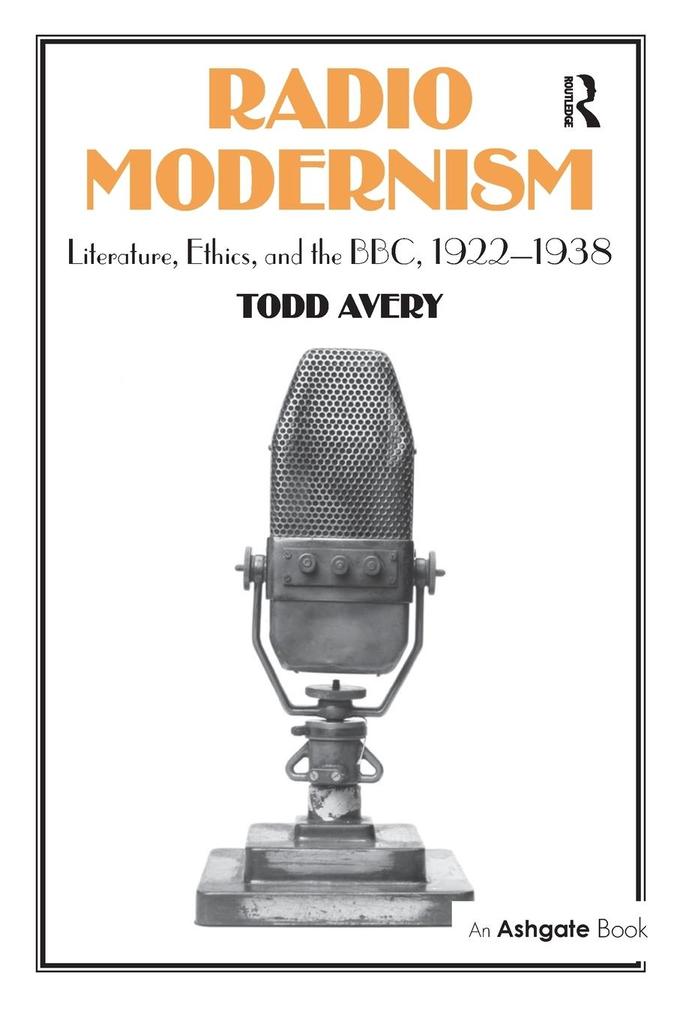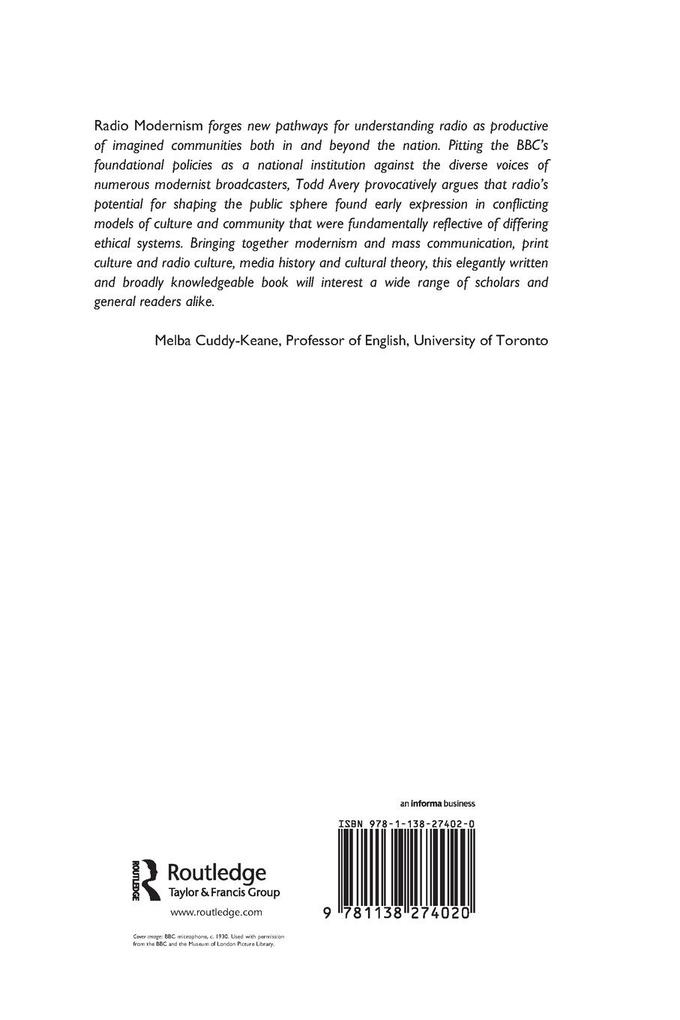Weaving together the BBC's institutional history and developments in ethical philosophy, Todd Avery shows how the involvement of writers like T. S. Eliot, H. G. Wells, E. M. Forster, and Virginia Woolf with radio helped to shape the ethical contours of literary modernism. His book recaptures for a twenty-first-century audience the interest, fascination, excitement, and often consternation that British radio induced in its literary listeners following its inception in 1922.
Inhaltsverzeichnis
Contents: Introduction: Modernism in the air; Arnold over Britain? John Reith and broadcasting morality; Common talkers: the Bloomsbury group and the aestheticist ethics of broadcasting; A natural selection: H.G. Wells and a Huxleyan ethics of communications; Talks toward a definition of morality: T.S. Eliot and the consecration of broadcasting; Conclusion; Works cited; Index.













